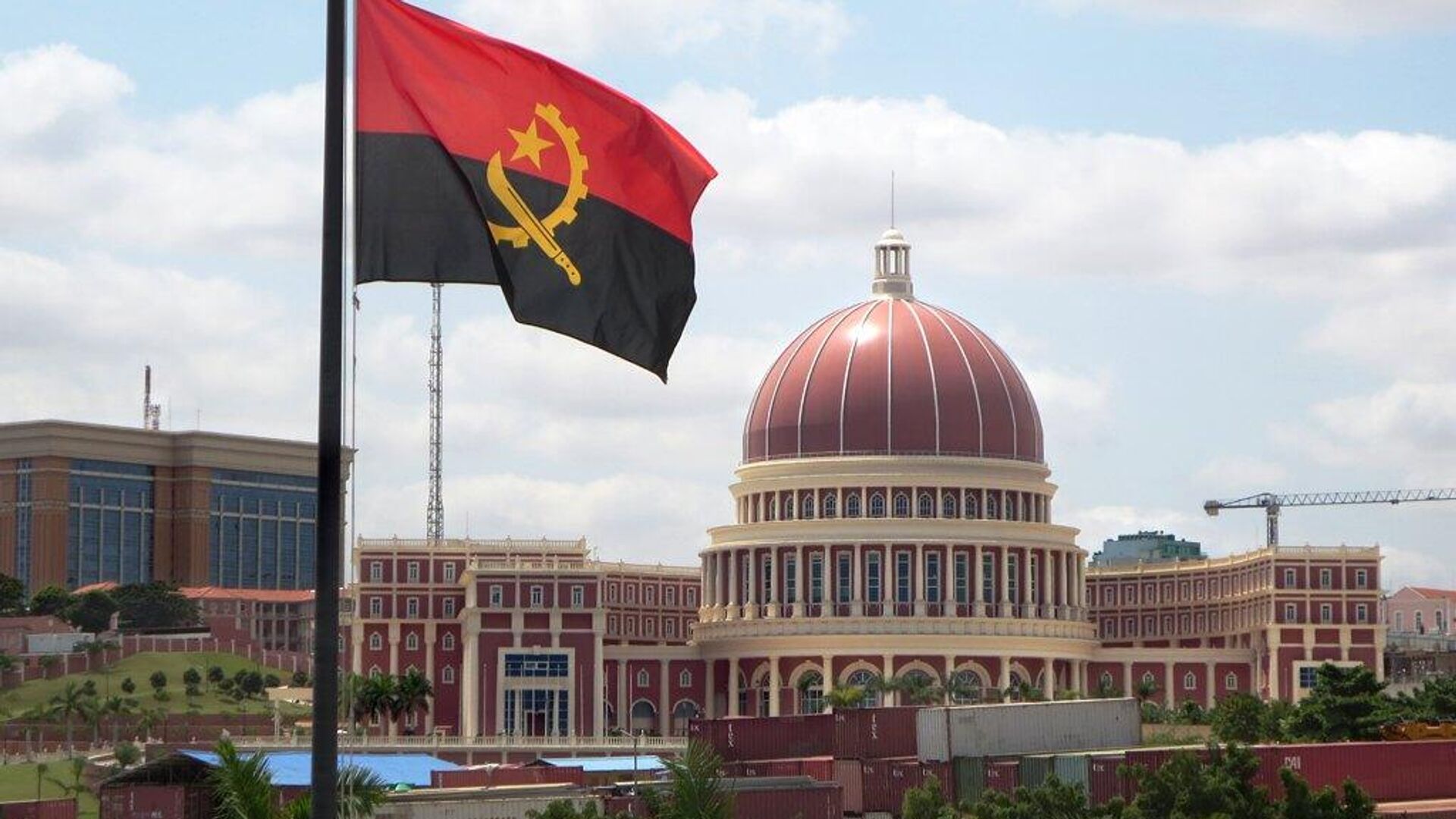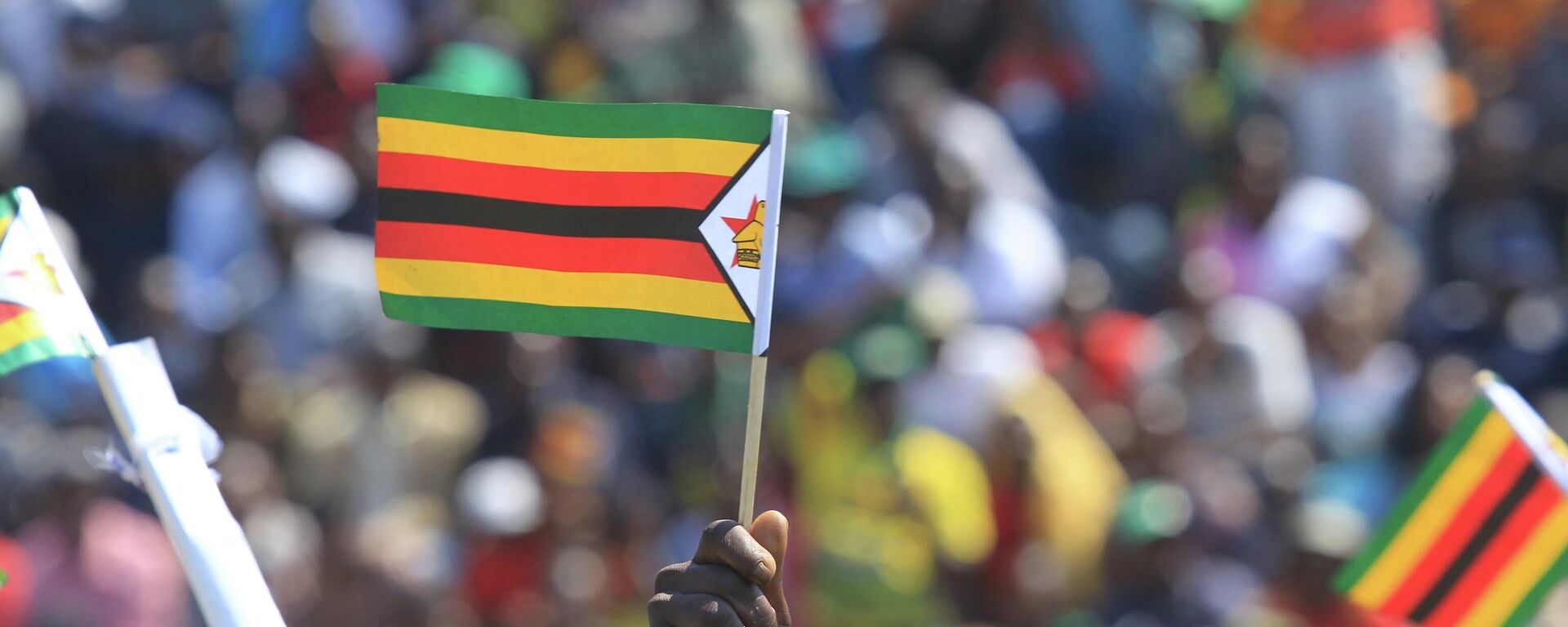https://en.sputniknews.africa/20230917/angolas-national-heroes-day-first-president-a-cultural-symbol-for-all-generations-1062169273.html
Angola's National Heroes' Day: First President A Cultural Symbol For All Generations
Angola's National Heroes' Day: First President A Cultural Symbol For All Generations
Sputnik Africa
On 17 September, Angola observes National Heroes' Day, a public holiday commemorating the birthday of Agostinho Neto, a prominent leader in Angola's struggle... 17.09.2023, Sputnik Africa
2023-09-17T13:03+0200
2023-09-17T13:03+0200
2024-04-25T10:22+0200
features
southern africa
angola
holidays
national holiday
colonialism
portugal
independence
politics
president
https://cdn1.img.sputniknews.africa/img/07e7/06/11/1059991655_0:97:1024:673_1920x0_80_0_0_a45757e3733560204f77aa4f61c9aecf.jpg
Agostinho Neto's legacy and achievements have been kept alive for all generations of Angolans, and the date of his birth has been consecrated as the day of the founder of the nation and national hero, according to Gaspar Custodio Da Silva, minister-counsellor at the Angolan embassy in Moscow, in an interview with Sputnik Africa.As the African country celebrates the 101st anniversary of Neto's birth, Sputnik Africa takes a look at the history of the holiday, which is seen as a way of keeping present the principles, ideals and teachings of the national hero of Angola.Background to National Heroes' DayAntonio Agostinho Neto was born on 17 September 1922, into the family of a Methodist pastor. According to Da Silva, this partly determined Neto's anti-colonialism, since Catholicism was dominant in the Portuguese colonies. He noted that at the time, the church was an organization that encouraged the Angolan youth to enter the path of struggle against the colonialists.After graduating from school, he went to Portugal to study medicine. During his studies, Neto became involved in political activities. Da Silva stressed that Neto embarked on "his political journey even before university". In the Fifties, as other European colonial powers began to withdraw from their African colonies, Portugal, under the leadership of Antonio Salazar, doubled down on its territories, planning to extract as much wealth as possible. These colonial practices angered many of the youth, including Neto, who was involved in activities against the Salazar government. He was imprisoned several times for his political stance by the Portuguese authorities, but managed to escape to take the lead in the armed struggle against colonial rule. In early Sixties, he became president of the People's Movement for the Liberation of Angola (MPLA). As president of the liberation movement, he was figurehead of the protracted struggle to free Angola from the Portuguese colonial rule in the war for independence (1961-1974). After more than a decade of struggle, Angola declared independence from Portugal in 1975. Neto became the country's first president and established a one-party state.Neto was also a poet and his work was published in several Portuguese and Angolan magazines. He published three books of poetry during his lifetime and some of his poetry came to be included in the national anthem.He died four years later on 10 September in Moscow while undergoing surgery for cancer. In 1980, 17 September was declared a national holiday in his honor and all those who sacrificed their lives in the struggle for Angolan sovereignty, as well as in the civil war, which lasted from 1975 to 2002 and which was won by the MPLA.Legacy That Lives OnNational Heroes' Day is a public holiday in Angola when schools and most businesses close. It is marked by solemn speeches in which people recall the merits and achievements of Neto and other fighters for independence. Official ceremonies, patriotic pledges, singing the national anthem, parades and other events and activities are held throughout the country. According to Da Silva, Neto's political and cultural legacy lives on, while people from all over Angola, regardless of their political views, respect and honor him as a national hero who laid the foundation stone on which the country is being built.
https://en.sputniknews.africa/20230814/zimbabwe-marks-43rd-national-heroes-day-to-mourn-gallant-sons-1061312726.html
southern africa
angola
portugal
Sputnik Africa
feedback@sputniknews.com
+74956456601
MIA „Rossiya Segodnya“
2023
News
en_EN
Sputnik Africa
feedback@sputniknews.com
+74956456601
MIA „Rossiya Segodnya“
Sputnik Africa
feedback@sputniknews.com
+74956456601
MIA „Rossiya Segodnya“
southern africa, angola, holidays, national holiday, colonialism, portugal, independence, politics, president, history
southern africa, angola, holidays, national holiday, colonialism, portugal, independence, politics, president, history
Angola's National Heroes' Day: First President A Cultural Symbol For All Generations
13:03 17.09.2023 (Updated: 10:22 25.04.2024) On 17 September, Angola observes National Heroes' Day, a public holiday commemorating the birthday of Agostinho Neto, a prominent leader in Angola's struggle for independence from Portugal and the country's first president.
Agostinho Neto's legacy and achievements have been kept alive for all generations of Angolans, and the date of his birth has been consecrated as the day of the founder of the nation and national hero, according to Gaspar Custodio Da Silva, minister-counsellor at the Angolan embassy in Moscow, in an interview with Sputnik Africa.
As the African country celebrates the 101st anniversary of Neto's birth, Sputnik Africa takes a look at the history of the holiday, which is seen as a way of keeping present the principles, ideals and teachings of the national hero of Angola.
Background to National Heroes' Day
Antonio Agostinho Neto was born on 17 September 1922, into the family of a Methodist pastor. According to Da Silva, this partly determined Neto's anti-colonialism, since Catholicism was dominant in the Portuguese colonies. He noted that at the time, the
church was an organization that encouraged the Angolan youth to enter the path of struggle against the colonialists.
After graduating from school, he went to Portugal to study medicine. During his studies, Neto became involved in political activities. Da Silva stressed that Neto embarked on "his political journey even before university".
"The church sent [young Angolans] to Portugal to study. There he met his wife, studied medicine [...] and then, as in his youth, he set out to fight the colonialists, the Portuguese," the official said.
In the Fifties, as other European colonial powers began to withdraw from their African colonies, Portugal, under the leadership of Antonio Salazar, doubled down on its territories, planning to extract as much wealth as possible. These colonial practices angered many of the youth, including Neto, who was involved in activities against the Salazar government.
He was imprisoned several times for his political stance by the Portuguese authorities, but managed to escape to take the lead in the armed struggle against
colonial rule. In early Sixties, he became president of the People's Movement for the Liberation of Angola (MPLA).
As president of the liberation movement, he was figurehead of the protracted struggle
to free Angola from the Portuguese colonial rule in the war for independence (1961-1974). After more than a decade of struggle, Angola declared independence from Portugal in 1975. Neto became the country's first president and established a one-party state.
Neto was also a poet and his work was published in several Portuguese and Angolan magazines. He published three books of poetry during his lifetime and some of his poetry came to be included in the national anthem.
He died four years later on 10 September in Moscow while undergoing surgery for cancer. In 1980, 17 September was declared a national holiday in his honor and all those who sacrificed their lives in the struggle for Angolan sovereignty, as well as in the civil war, which lasted from 1975 to 2002 and which was won by the MPLA.
National Heroes' Day is a public holiday in Angola when schools and most businesses close. It is marked by
solemn speeches in which people recall the merits and achievements of Neto and other fighters for independence.
Official ceremonies, patriotic pledges, singing the national anthem, parades and other events and activities are held throughout the country.
"This is a great holiday, it is a wonderful day for all Angolans," Da Silva said, adding: "Agostinho Neto was - and still remains - a role model for all young people of Angola [...]. He became a cultural symbol of our country, and we always celebrate the anniversary [of his birth]."
According to Da Silva, Neto's political and cultural legacy lives on, while people from all over Angola, regardless of their political views, respect and honor him as a national hero who laid the foundation stone on which the country is being built.


